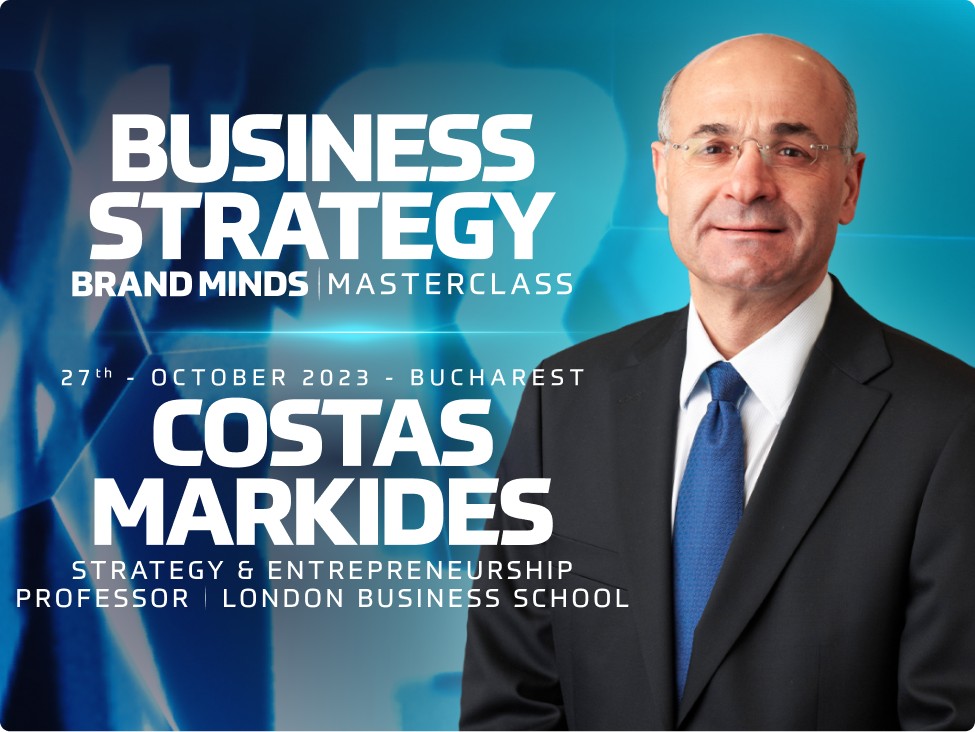The 3 big risk management mistakes executives make
If you’re an executive, in charge of outlining the business strategy, read on to learn what the 3 big common risk management mistakes are and how to avoid them.
Risk Management Mistake #1 Thinking we can manage risk by predicting extreme events
Energy companies have gone from predicting the moment a nuclear power plant will explode to preparing for the consequences of such an event.
Like these companies, we’re very good in our day-to-day lives at thinking about how we’re going to deal with the repercussions of a Black Swan event (low probability, high impact) instead of worrying that it might happen.
For this reason, we get insurance for health, home, or car, but to a lesser extent, we do this in business, which is more seen as an optional thing.
How to avoid this risk: Adopt strategic foresight.
What is strategic foresight? It’s the Waze of business; it’s strategy, tool, process and mindset combined.
By using strategic foresight, companies can identify vital early signs of change that could influence or disrupt their industry. It is a contribution to the mitigation of risks explicitly related to external events — changes in the competitive environment.
Further on, strategic foresight allows them to think in alternative scenarios and turn change and uncertainty into opportunities. If you were a decision-maker, wouldn’t you like to have an early warning capability?
Foresight also helps companies build relevance: understanding future trends allows companies to anticipate what consumers/employees want next and create relevance for them. Ask yourself, is the industry changing, but your company is not?
Learn more on business foresight.
Risk Management Mistake #2 Being convinced that studying the past will help us manage risk
Until the late 1980s, the worst drop in stock prices in a single day had been about 10%. However, prices fell by 23% on October 19, 1987.
Risk managers believe that they can find precedents for all events that happen and that they can predict everything that will happen based on previous events. But Black Swan events are unprecedented, and the interdependence and non-linearity of events increases.
How to avoid this risk: Be aware of any change in your customers’ behaviour.
Studying the past doesn’t help us predict the future. But studying our customers’ behaviours can help us better prepare for any change the future might bring.
We don’t need to be aware of the latest development in technology in every market; just the tech our customers use or switch to. Look closely at your customers’ moves and preferences and create strategies to meet their needs accordingly.
Risk Management Mistake #3 We don’t listen to advice about what we shouldn’t do
Almost every business section in all bookstores is full of titles showcasing success stories and just a few with a negative connotation that teaches you what you should not do. This is why economists are framed to create success stories.
If there’s one lesson we should learn from chess, it’s this: grandmasters win games by focusing on avoiding errors while inexperienced chess players play to win and invariably make fatal mistakes.
Likewise in the economy, most of the time risk managers act like risk investors trying to win, but a dollar saved is a dollar earned, so saving money for your company is just as important as bringing in additional profits.
This is why corporations should integrate risk-management activities into profit centres and treat them as profit-generating activities, particularly if the companies are susceptible to Black Swan events.
How to avoid this risk: Listen to your frontline workers.
Whether they are in customer experience or sales, workers who are in direct contact with your customers are extremely valuable and their input should not be taken lightly. They are your company’s proverbial finger on the pulse and if allowed, will share their insights and prevent you from making bad decisions.
Afraid of making the wrong decisions?
Attend the BUSINESS STRATEGY MASTERCLASS, on October 27 and learn how to make the best decisions for your organization from Costas Markides, Professor of Strategy & Entrepreneurship at London Business School.

5 pieces of advice for entrepreneurs in 2018, the local PR agency point of view
We recognize the importance of PR in your business and we believe you should as well. Therefore, after last week‘s pieces of advice received from Chapter 4 Romania, we now offer you the perspective of a local, driven and creative PR agency – Galeriu & Partners PR. A point of view wrote by Alina Galeriu, Managing Partner.

It’s a special mindset the one of an entrepreneur. It’s a mindset of a dreamer and in the same time a mindset of a doer. It’s the mindset of an overachiever.
There is no uncomplicated way when you start your own path and take full responsibility for your future and the future of your employees. There is no free time left, because your job becomes your life. Your thoughts will always revolve around your job and the worries will endlessly hunt you. There is no entrepreneur not facing these challenges daily.
I know this first hand, since I am myself an entrepreneur struggling with all these demons, doubts and setbacks. However, I also know how thrilling it is to win a new client, to receive a thank you email for a job well done or to simply see things happening the way you imagined them and even better. It’s like you have a magical wand that makes dreams come true. There are days when such emotions flood me and make every struggle worth it. There are days like these when mountains seem to be easy to move and the sky seems reachable.
So, I understand the way an entrepreneur thinks from an insider point of view. Also, as a communication consultant I come across various entrepreneurial businesses which I can see as an outsider, trying to grasp with an objective eye what needs to be done to improve their performance and help them gain more clients, which is ultimately their goal.
Fine tuning – the art of finding balance between idealism and realism
Talking about goals, the first advice I would give to an entrepreneur is about finding clarity in setting goals. From my experience with dealing with small business owners, the short-term objectives tend to win over the ones focused on long-term. Thus, they seem to be forgetting the bigger picture. Which is very dangerous on the long run for their business. When you think small, you act small.
Of course, there is also the equally dangerous approach of taking risks for the sake of saying “I believe I can, so I will”. Positive thinking can help one boost their morale, but there should be some extent towards which one can keep on dreaming without a reality check.
Either of these approaches would turn out to be inefficient, so my advice would be: start taking calculated risks. Of course, if you simply take small steps, the return will be also small and almost insignificant, so you can soon start feeling demotivated. Risk taking is something you should be considering as an entrepreneur. But, again: take the risk without losing your head! First years after launching a business translate into investing and getting little in return. But if you make the right investments (and by investing, I mean time, energy, money altogether) and have a helicopter view upon the market, the consumer and your product’s place among these exterior factors, you will win in time.
There is a thin line between being either too shy in taking risks or being reckless about it. This fine adjustment in finding the balance between the two is the art of keeping you head clear, focused on the future, yet having your feet on the ground.
How can this be translated into actual PR tactics?
Time to give some real examples, PR related. But not before debunking one more myth: PR is not free. Yes, it means investing far less money than you would have to invest if turning to advertising, but it still is a promoting technique which means investing some money to get results.
For example, you cannot expect to generate free media coverage endlessly without offering product samples to be tested by journalists and online influencers (bloggers, vloggers) or inviting them to test your facility if you are operating in a hospitality industry for example (a restaurant, a hotel, an entertainment facility). This, of course, translates into costs for your small business. But there is no better way to prove the effectiveness of your products or services than inviting key opinion leaders to test and convince themselves that you deserve to be praised. And there are several PR tactics.
Also, you cannot expect that your priorities would be embraced by everyone around you. Of course, your product’s benefits seem the most vital discovery in the world in your view, yet journalists are facing so many similar remarkable / never seen before / innovative product news which they need to browse through… So, it is only natural that sometimes they miss out on some of the details. Or sometimes they genuinely think some other product is more important or relevant for their readers or for the focus and style of the publication they are working for. This should not be a reason to hold a grudge. It is what it is. Learn the lesson and move on. Being too pushy regarding a certain topic will only make journalists feel cornered and uncomfortable. So better than to push someone on the verge of becoming resentful.
And finally, you should take into consideration giving back to others from time to time, through a small CSR campaign, or at least a donation for the less fortunate. Sometimes simply a know-how sharing effort can mean a lot for those in need, while for you would only mean sparing a few hours for visiting students at a university class or hosting internships for them in your company and guiding their firsts steps in the field you activate in.
In many ways PR is simply a set of common sense rules. It’s about empathy, about balance and about being reasonable. As simple as that.